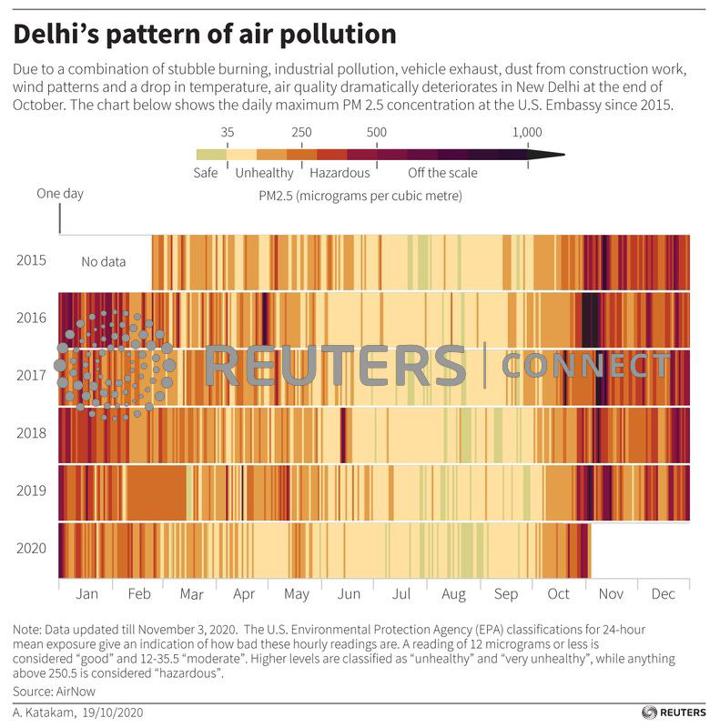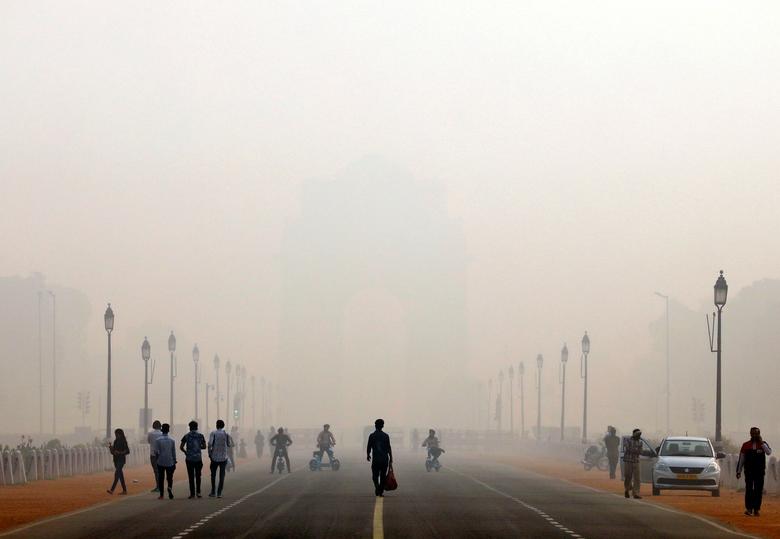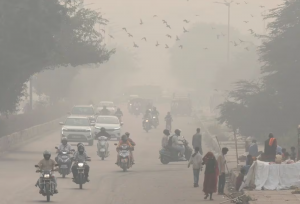(ATF) Traditionally Diwali – the Hindu festival of lights – is a season for celebrating victory of light over darkness, and good over evil. It is also a time when the skies turn hazy with pollutants from the millions of fire-crackers that are traditionally set off as a part of the celebrations.
But desperate times call for desperate measures. Citing a link between pollution and a coronavirus surge ahead of the festival, the National Green Tribunal (NGT), India’s environmental court, ordered a complete ban on the sale and use of all kinds of firecrackers in the country.
The ban that came into effect from midnight on Tuesday will last until midnight of November 30. These are days during the country’s biggest annual festival – when most Indian cities battle hazardous poor quality air.
India has the second-highest number of coronavirus infections in the world, and experts have raised concerns about air pollution worsening the symptoms of respiratory illnesses such as Covid-19.
The tribunal, whose powers are similar to a regular court, said that pollution caused by fireworks was an “aggravating risk to lives and health,” and that its order will apply to all cities where the air quality in November fell to the poor or worse than poor category in last year’s data.
In cities where air quality is ‘moderate’ or below normal, only “green” crackers could be sold, but in other places, like Delhi, the ban must be “absolute” because of the pollution crisis and rising Covid-19 cases, the NGT added.
Delhi the worst
The ban comes in the wake of rising levels of pollution in Delhi and other parts of northern India, which suffer serious smog every winter because of post-harvest stubble burning and heavy and dirty industrialisation.
Delhi on Sunday reported 7,750 coronavirus cases in a day, a record since the start of the pandemic, with hospitals reporting that intensive care beds are running out.
The air pollution problems in Delhi and Beijing, in fact, are the worst globally, but India’s national capital often beats Beijing in terms of its magnitude. According to the US Embassy’s air quality index, for instance, New Delhi’s pollution level is often ten times worst than Beijing.
China’s anti-pollution measures have been aggressive, but critics say New Delhi’s response to air pollution has been half-hearted, despite new government policies meant to address the issue.
And part of that stems from the fact that sources of pollution are often politically sensitive, they say, noting that state officials are usually reluctant to get offside with farmers, landowners, property developers, builders and industry.

Firework sellers explode
Immediately after the ban, the Confederation of All India Traders (CAIT) demanded that Delhi Chief Minister Arvind Kejriwal and state heads compensate firecracker traders for the losses they would incur because of the ban
CAIT said the ban would hit “hundreds of thousands of small and tiny traders of Delhi and poor people who earn extra income by selling firecrackers”, and was a violation of an order from the Supreme Court in March 2019.
It said a complete ban on crackers is hardly a solution of the air-pollution crisis, and suggested that other polluters be dealt with first.
India’s firecracker industry provides jobs for around a million people, over 80% of who work in 1,100 firecracker manufacturing units that generate close to a billion dollars of extra earnings for these workers in just a few days of celebrations, the trade body said.
CAIT also said that national environmental agencies had failed to tackle root causes of pollution, such as dirty industries, the burning of post-harvest stubble and the huge growth in vehicle use.
With reporting by AFP
























